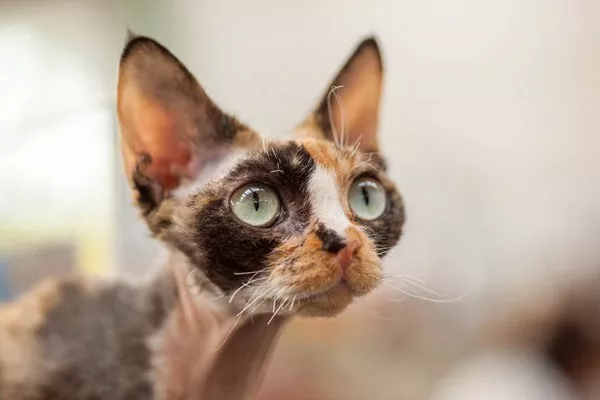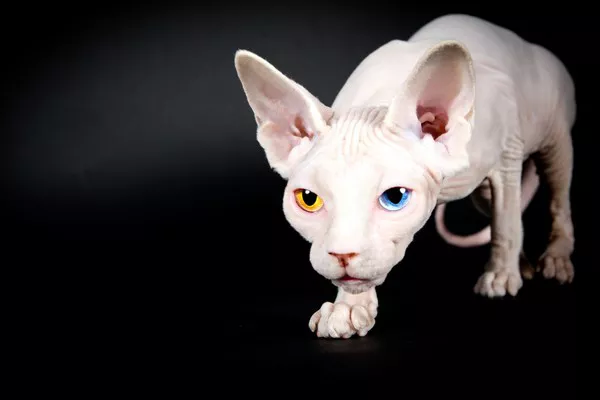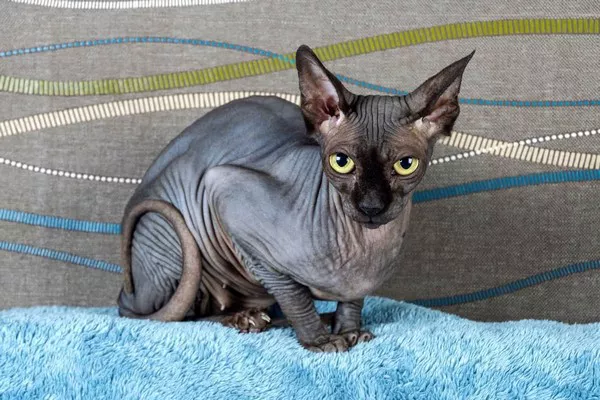Devon Rex cats are a unique and fascinating breed known for their curly coats, large ears, and playful personalities. As potential pet owners consider bringing home a Devon Rex cat, one of the most important considerations is their overall health. In this article, we will explore the health concerns commonly associated with Devon Rex cats, their genetic predispositions, and steps that can be taken to ensure their well-being. By understanding these factors, prospective owners can make informed decisions when it comes to caring for their beloved Devon Rex companions.
1. History and Breed Characteristics:
The Devon Rex cat breed originated in England during the late 1950s when a curly-coated kitten named Kirlee was found in Devonshire. Known for their distinctive appearance, Devon Rex cats have a slender body, large eyes, and oversized ears. Their coat is soft and curly, resembling that of a lamb or a pixie-like creature. Despite their unusual physical characteristics, Devon Rex cats are generally considered healthy and resilient.
2. Common Health Concerns:
While Devon Rex cats are generally healthy, like any other breed, they can be prone to certain health conditions. It’s crucial for owners to be aware of these potential issues and to seek veterinary care promptly if any symptoms arise. The following are some common health concerns observed in Devon Rex cats:
Hypertrophic Cardiomyopathy (HCM): HCM is a heart disease characterized by the thickening of the heart muscles, which can lead to poor heart function. Devon Rex cats are predisposed to HCM, and regular veterinary check-ups, including cardiac screenings, are essential to detect this condition early.
Luxating Patella: This refers to the dislocation of the kneecap, which can cause lameness and discomfort. While not exclusive to Devon Rex cats, they may have a higher incidence of luxating patella compared to other breeds. Proper exercise and monitoring can help identify and manage this condition.
Polycystic Kidney Disease (PKD): PKD is a genetic disorder where cysts form in the kidneys, leading to kidney dysfunction. While more commonly associated with Persian cats, Devon Rex cats can also carry the gene responsible for PKD. Responsible breeders perform genetic testing to ensure they do not mate cats that carry the PKD gene.
Skin Issues: Due to their unique coat, Devon Rex cats may be more prone to skin conditions such as dermatitis and fungal infections. Regular grooming and keeping their environment clean are important for minimizing the risk of skin problems.
3. Genetics and Breeding:
Genetic factors play a significant role in the health of Devon Rex cats. To maintain the overall health of the breed, responsible breeders employ genetic testing to identify potential inherited diseases. They carefully select breeding pairs to minimize the risk of passing on genetic disorders such as HCM and PKD. It is crucial for prospective owners to inquire about the breeder’s practices and ask for health clearances of the parent cats before bringing home a Devon Rex kitten.
4. General Care and Wellness:
To ensure the well-being of Devon Rex cats, it is essential to provide them with proper care and a healthy lifestyle. Here are some general guidelines for maintaining their overall health:
Balanced Diet: Providing a nutritious and balanced diet is vital for the optimal health of any cat, including Devon Rex. Consult with a veterinarian to determine the appropriate diet, taking into account their age, weight, and any specific dietary requirements.
Regular Veterinary Check-ups: Routine veterinary check-ups should be scheduled to monitor the cat’s overall health and to detect any potential issues at an early stage. Vaccinations, parasite prevention, and dental care should be included in the regular healthcare regimen.
Environmental Enrichment: Devon Rex cats are highly energetic and intelligent. They thrive in an enriched environment that provides mental stimulation and opportunities for exercise. Interactive toys, scratching posts, and vertical spaces can help keep them mentally and physically engaged.
Grooming: While Devon Rex cats have a unique coat that sheds less than other breeds, regular grooming is necessary to maintain their skin and coat health. Gentle brushing, ear cleaning, and nail trimming should be part of the grooming routine.
Conclusion:
Devon Rex cats are generally healthy and robust companions, but like any breed, they can be prone to certain health conditions. Being informed about their genetic predispositions and implementing proper care and preventive measures is vital for ensuring the well-being of these charming feline companions. By partnering with reputable breeders, maintaining a healthy lifestyle, and being vigilant about their health, owners can enjoy many years of love and joy with their Devon Rex cats.


























